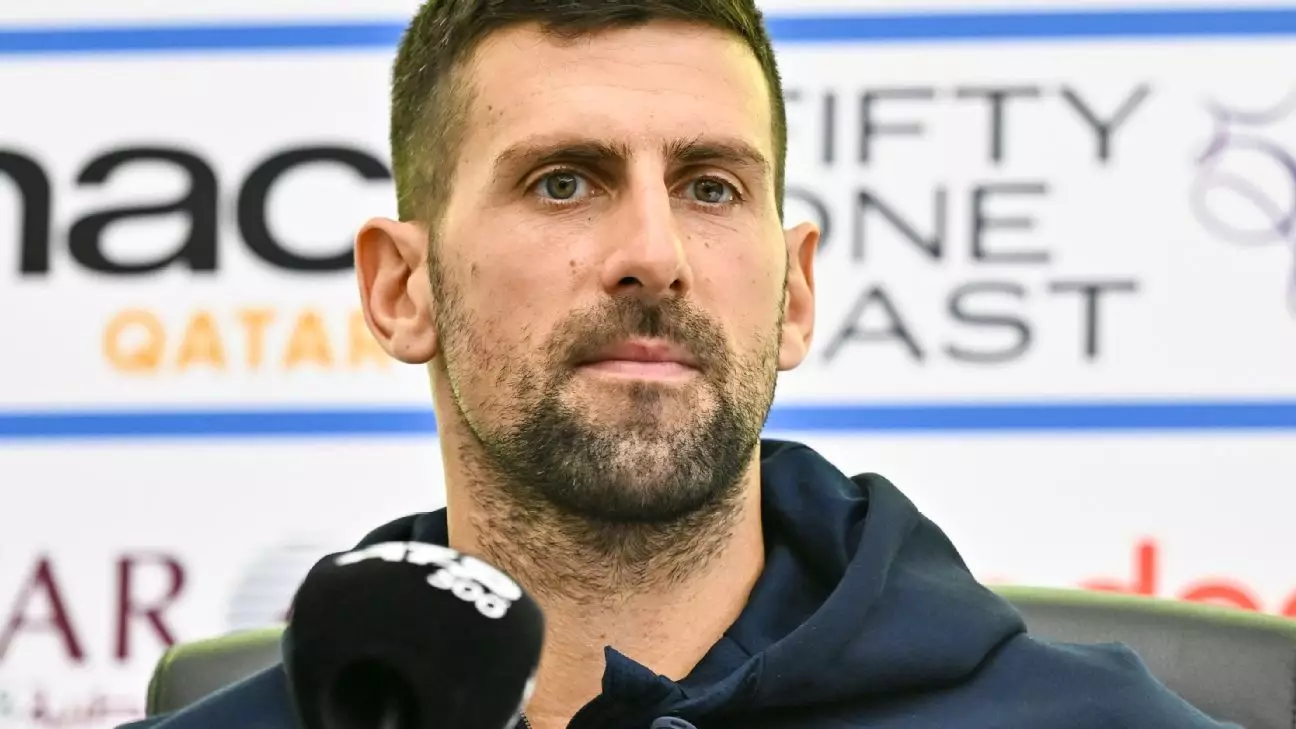In a bold move emblematic of growing player empowerment within the realm of professional sports, a group of the world’s premier tennis players—including stars like Novak Djokovic and Aryna Sabalenka—have began advocating for a reform in the distribution of prize money and a stronger voice in the governance of tennis. On March 21, these luminaries sent a letter to the heads of the Grand Slam tournaments, calling for tangible changes that reflect their contributions and sacrifices to the sport. This unprecedented collective action has opened a can of worms within the tennis community, suggesting that the time for prioritizing player welfare and financial fairness has come.
A Common Cause: Diverse Voices United
This initiative was joined by many notable names in tennis, representing both the men’s and women’s tours. Players such as Jannik Sinner, Coco Gauff, and Emma Navarro lent their signatures to this appeal, collectively presenting a front that encompasses some of the most influential athletes in the sport today. What stands out in this movement is not just the momentum built by individual stars, but the rare unity displayed between the men’s and women’s game—an alliance that could fundamentally reshape the landscape of tennis governance.
However, it’s also intriguing to note who is missing from the conversation. Key figures like Elena Rybakina were absent, highlighting potential fractures or hesitations within the ranks. This absence can point to larger issues of solidarity in a sport that is often criticized for its barriers to equity and inclusivity. Moving forward, it’s essential that the dialogue be extended to include all voices within the sport to create a more holistic approach toward reform.
Three Pillars of Demands: A Clear Vision
The players have articulated three clear demands in their letter:
1. Financial Contributions to Player Welfare Programs: The proposal indicates a call for Grand Slam events to contribute to a player welfare fund, underscoring that the health and well-being of athletes should be prioritized by the organizations that benefit from their labor.
2. Appropriate Prize Money Distribution: Currently, prize money distribution reflects a skewed relationship between tournament revenues and player earnings. The players argue that their performances—often the core spectacles of these events—should receive a more equitable compensation tailored to the financial success of the tournaments.
3. Greater Involvement in Decision-Making: The athletes seek increasing influence over decisions that directly affect the athletic and mental health landscape of the sport. This demand speaks volume about the current governance dynamics wherein athletes feel like mere passengers rather than stakeholders.
It raises an important question: why are players not privy to decisions that significantly impact their careers? In a sport that hinges on performance, comprehensive involvement from its athletes could lead to innovations and reforms that benefit all involved.
The Impending Legal Debate: A Shift in Power Dynamics
Adding fuel to the fire is recent news surrounding an antitrust lawsuit initiated by players who have taken their grievances against the various governing bodies of tennis into the legal arena. Although Djokovic is not one of the plaintiffs, his co-founding of the players’ association highlights his commitment to change, displaying a willingness to fight for what could be a substantial shift in how tennis is governed.
This unfolding legal battle touches upon key complaints about how revenue generated from tournaments is distributed and utilized, further intensifying conversations around equity. The stark contrast between revenues, such as a reported $12.8 million from a single specialty cocktail at the U.S. Open versus the collective prize money awarded, showcases glaring discrepancies that demand immediate redress.
Impact of Recent Prize Money Announcements
Interestingly, while players voice their concerns, tournaments are responding. The U.S. Open announced a hefty $75 million in overall compensation for 2024—a figure that, while impressive, still raises eyebrows when viewed against the backdrop of player demands. Is this gesture merely a public relations move to quell dissent, or a genuine step toward re-evaluating player compensation?
Such increases hint at a growing acknowledgment of the players’ contributions, yet the broader question remains: Is it enough? The gap between tournament revenues and player payouts is still significant across other Grand Slams, including Wimbledon and the French Open, which leave room for speculation on how improvements can be made across the board.
The Road Ahead: Communication and Reform
The French Open is just around the corner, and as players gather to compete, the immediacy of the discussions surrounding prize money and athlete voice cannot be overstated. Transparency and open communication between players and tournament organizers will be pivotal in the coming months as both sides evaluate the implications of this letter and its demands.
As players continue to step up and assert their needs, one thing is clear: the landscape of professional tennis is changing. Whether this collective push for fairer compensation and greater involvement in decisions becomes a transformative moment for the sport will depend on the willingness of all stakeholders to engage in meaningful conversations and foster equitable solutions.

